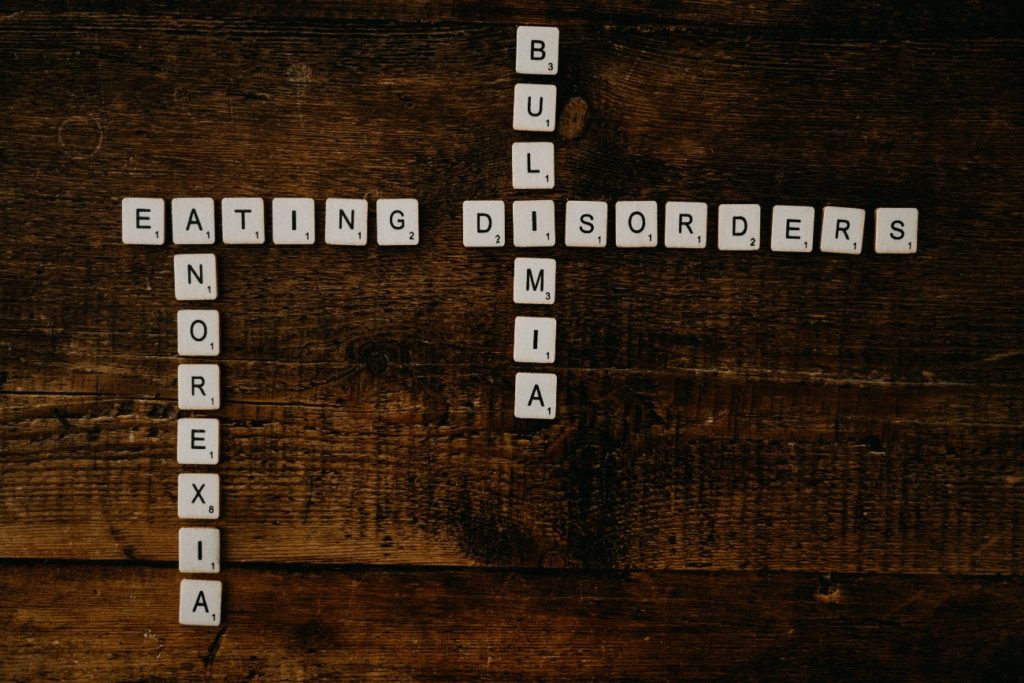Updated on 2/7/2023
Eating disorders often work in conjunction with substance use, as both are self-destructive behaviors that cause changes in the mind and body. This can start with environmental factors such as trauma, lack of self-worth or unmanaged stress. The following blog explains the connection between eating disorders and addiction and how to seek treatment.
Content Reviewed by Cameron Bolish, M.Ed., CEO of PaRC
Research has found that nearly half of individuals with an eating disorder also misuse alcohol or other drugs. The same research shows that nearly 35% of individuals who use alcohol and other drugs also struggle with an eating disorder. Although co-occurring mental health and substance use disorders are common, there are several reasons why eating disorders and substance use disorder (SUD) co-occur at such a high rate. It is important to address the links between these conditions to better prevent comorbidity and worsening symptoms of both conditions.
What are co-occurring disorders in addiction recovery?
Co-occurring disorders are the presence of SUD and one or more mental health disorders simultaneously. Research suggests three potential causes for co-occurring disorders. These are:
Each condition develops separately through shared risk factors.
Genetic risk factors, such as whether a mental health or substance use disorder runs in the family or if an individual already has a diagnosed disorder, can increase the risk of developing a co-occurring disorder. Environmental factors such as untreated trauma, lack of self-worth or unmanaged stress can also contribute to the simultaneous development of mental health and SUD.
Poor mental health can contribute to substance use and SUD.
Mental health conditions can make an individual more vulnerable to using substances and becoming addicted more quickly. Many people who struggle with their mental health turn to alcohol and other drugs as a form of self-medication, which can perpetuate substance use.
Substance use can trigger the development of mental health conditions and eating disorders.
Substance use alters brain structure and functioning. When substances are used repeatedly, chemical changes in the brain can make an individual more vulnerable to developing a mental health disorder.
What is the basis of addiction?
To better understand the relationship between eating disorders and addiction, one must first understand each condition separately. Addiction is a complex and chronic disease that involves compulsive drug-seeking and drug-using behavior. Although one’s initial decision to use alcohol or other drugs may have been voluntary, once a person develops an addiction, substance use is no longer a matter of choice.
Substance abuse triggers changes in brain structure and functioning that compromises an individual’s self-control, making drug-seeking and drug-using behaviors irresistible. Human brains are motivated by experiences of pleasure. When an individual is exposed to the perceived pleasure achieved from substance use, they will experience reduced pleasure obtained from natural rewards, such as socializing or having sex. Consequently, substance use becomes the only way to achieve normal or heightened levels of pleasure.
There are many reasons why people initiate drug use, although purposes of self-medication seem to be a prevalent cause. Many people who struggle with their mental health turn to alcohol and other drugs as an escape. However, substance use usually worsens mental health problems in the long run. Self-medicating practices may inevitably lead to addiction.
What is the basis of eating disorders?
Eating disorders are severe mental health disorders that cause disturbances in an individual’s eating patterns as well as thoughts and emotions related to food and its consumption. The three most common types of eating disorders are anorexia nervosa, bulimia nervosa and binge-eating disorder. While all of these disorders have distinct features, they are all typically defined by a preoccupation with food and body image.
Eating disorders are not a choice. They are biologically influenced and can contribute to severe physical and mental health consequences. They develop from a combination of genetic, biological, behavioral, psychological and social factors.
The link between eating disorders and addiction
The main link that connects eating disorders and addiction is that both are self-destructive. Self-destructive behaviors cause chemical changes in the body that may be perceived as soothing in the moment though they are bound to cause harm over time. While some people may become preoccupied with their eating habits or body image as means of feeling control, others become preoccupied with self-medicating practices to find relief. Then, there are those people who engage in both as means of achieving what they perceive as ultimate relief.
The perpetual cycle of reduced self-worth in addiction recovery
Another link that connects eating disorders and addiction is the perpetual cycle of reduced self-worth. Many people become hyper-focused on their eating or substance-using habits in an attempt to feel better about themselves. Someone who feels overweight may restrict their eating to feel better about their body image. Similarly, someone who feels depressed may turn to substance use to numb their feelings.
Despite what some people think, hyper-fixating on eating or substance-using habits will not solve a lack of self-worth. Instead, these habits perpetuate a negative image of oneself. Individuals who struggle with eating disorders or co-occurring SUD must seek treatment that addresses the underlying cause of their behavior patterns rather than solely attempting to stop the behaviors. Similarly, co-occurring disorders must be treated simultaneously to ensure effective and lifelong recovery.
Several treatments are recommended for overcoming co-occurring conditions, including:
- Medical stabilization
- Pharmacotherapy
- Psychosocial treatments
- Cognitive behavioral therapy (CBT)
- Dialectical behavior therapy (DBT)
- Interpersonal psychotherapy
- Family therapy
- Self-help groups
Prevention and Recovery Center (PaRC) is a comprehensive addiction treatment facility that offers treatment services for anyone seeking recovery. We understand that co-occurring disorders are common, which is why we create individualized treatment plans for all of our patients throughout their treatment journey. We are devoted to helping our patients achieve and sustain sobriety, no matter how difficult the journey may be. To learn more, call (713) 939-7272.
